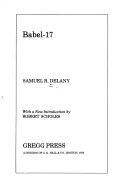Reviews
August Stone@unfortunatecrowboy
Lindy@lindyb
Justin Jerome Price@so64
Justin Jerome Price@so64
Jeremy Sheridan Wells@jsheridanwells
Imane@imanes
Shea Newton@shnewto
Anna Walder@Anna
Ben Nathan@benreadssff
Lucas Melin@lucasmelin
Rick Powell@rickpowell
Elena Kuran@elenakatherine
Bulkan Evcimen@bulkan
Audrey Hull@pilot_9
Vladimir@vkosmosa
Morgan Thomas@moalthom91
Amit kumar@amits_nihal
Angela Vang@hopeworldian
Magnus Dahl@gorillotaur
Ewan@euzie
Zoey Mikalatos@zoeymik
Mehmet Ali Ertürk@merturk
Phileas Fogg@phileas
Asmaa Mohurji@asmaa
Highlights
Brandon Liew@poryhedron
